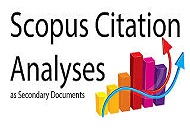Penerapan Terapi Cobra untuk Merubah Karakter Siswa SMAN 7 Mataram
DOI:
https://doi.org/10.33394/jk.v4i2.1132Keywords:
Terapi Cobra, Karakter Siswa.Abstract
Abstract: Character is inherent and formed in someone. To change the characters, it requires a process. The
high school level education psychologically can be claimed as education in changes that is quite heavy. The
limited number of teachers compared to the number of students, social interaction and situational time had
been very possible to be the cause. The implementation of Cobra Therapy (Joint Example of Behaviour
Regulation) applied had been in accordance with CBT Methods i.e. an approach to the root of cognitive
therapy (persuasion, challenging, debate, hypothesizing, cognitive restructuring, and internal debate). The
results of the study obtained that the COBRA therapy program compiled and implemented was as a form of
coaching efforts that were more intensive and specific to students who had the problems. The implementation of COBRA therapy at SMAN 7 Mataram was very effective as an alternative problem solving for students in improving the character education.
Â
Abstrak: Karakter memang sudah melekat dan terbentuk pada diri sesorang. Untuk merubahnya memerlukan proses. Pendidikan pada jenjang SMA, secara psikologis dapat dikatakan sebagai pendidikan pada perubahan yang cukup berat. Terbatasnya jumlah guru dibandingkan dengan jumlah siswa, waktu interaksi dan situasional sosial sangat dimungkinkan sebagai penyebabnya. Pelaksanaan Terapi Cobra (Contoh Bersama Regulasi Ahklak) yang diterapkan sesuai dengan CBT Methods yaitu teknik pendekatan dengan akar terapi kognitif (persuasion, challenging, debate, hypothesizing, cognitive restructuring, and internal debate). Hasil yang didapatkan bahwa program terapi COBRA yang disusun dan dilaksanakan sebagai bentuk upaya pembinaan yang lebih intensif dan spesifik terhadap siswa-siswa yang bermasalah. Pelaksanaan terapi COBRA di SMA Negeri 7 Mataram sangat efektif sebagai alternatif pemecahan masalah siswa dalam meningkatkan pendidikan karakter
References
Hermawan, A.H. 2009. Persepsi Pasien Tentang Pelaksanaan Komunikasi Terapiutik Perawat dalam Asuhan Keperawatan Pada Pasien di Unit Gawat Darurat RS. Mardi Rahayu Kudus.
Diakses melalui http://eprints. undip.ac.id/10473/1/ARTIKEL.pdf,
tanggal 12 September 2016
Khoirotur. R 2012. Pengaruh Sosialisasi Siswa Dengan Guru dan Persepsi Siswa Terhadap Motivasi Belajar. Abstrak Tesis IAIN Walisongo. Diakses melalui http://eprints.walisongo.ac.id tanggal
September 2016
Meliala, A. 2010. Antara Menghukum atau Mempermalukan
Suatu Upaya Memodifikasi Perilaku. Jurnal Universitas Indonesia
Diakses melalui http://journal.ui.ac.id/index.php/hum
anities/article/viewFile/94/90 tanggal 18 September 2016
Purwanto, MA. 2013. Faktor-Faktor Yang Mempengaruhi Prestasi Belajar SMK Nasional Berbah Tahun Ajaran 2012/2013. Jurnal UNY. Diakses melalui http://eprints.uny.ac.id/10366/1/jurna
l%20ilmiah.pdf tanggal 18 September 2016
Rihadini, M. 2012. Pengukuran Kefektifan Organisasi. Diakses
melalui http://repository.unhas.ac.id/bitstrea m/handle/123456789/1672/BAB%20 II.pdf?sequence=2 tanggal 12
September 2016.
Suwardi, DR. 2012. Faktor-Faktor Yang Mempengaruhi Hasil Belajar Siswa Kelas XII di SMA Negeri 1 Bae Kudus. Diakses melalui
http://journal.unnes.ac.id/sju/index.php/eeaj/article/viewFile/667/650
tanggal 19 September 2016
Downloads
Published
How to Cite
Issue
Section
Citation Check
License
License and Publishing AgreementIn submitting the manuscript to the journal, the authors certify that:
- They are authorized by their co-authors to enter into these arrangements.
- The work described has not been formally published before, except in the form of an abstract or as part of a published lecture, review, thesis, or overlay journal.
- That it is not under consideration for publication elsewhere,
- That its publication has been approved by all the author(s) and by the responsible authorities – tacitly or explicitly – of the institutes where the work has been carried out.
- They secure the right to reproduce any material that has already been published or copyrighted elsewhere.
- They agree to the following license and publishing agreement.
Authors who publish with JK agree to the following terms:
- Authors retain copyright and grant the journal right of first publication with the work simultaneously licensed under a Creative Commons Attribution License (CC BY-SA 4.0) that allows others to share the work with an acknowledgment of the work's authorship and initial publication in this journal.Â
- Authors are able to enter into separate, additional contractual arrangements for the non-exclusive distribution of the journal's published version of the work (e.g., post it to an institutional repository or publish it in a book), with an acknowledgment of its initial publication in this journal.
- Authors are permitted and encouraged to post their work online (e.g., in institutional repositories or on their website) prior to and during the submission process, as it can lead to productive exchanges, as well as earlier and greater citation of published work.
- Open Data Commons Attribution License, http://www.opendatacommons.org/licenses/by/1.0/ (default)

This work is licensed under a Creative Commons Attribution-ShareAlike 4.0 International License.








